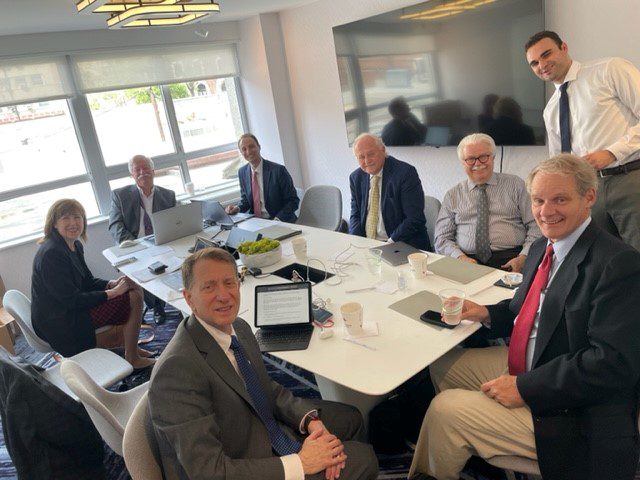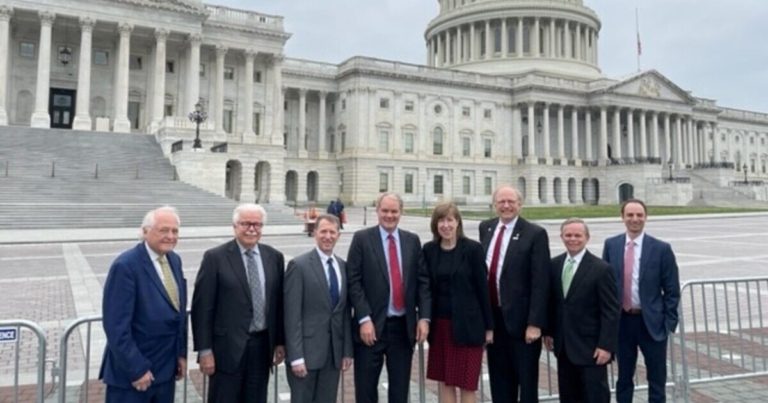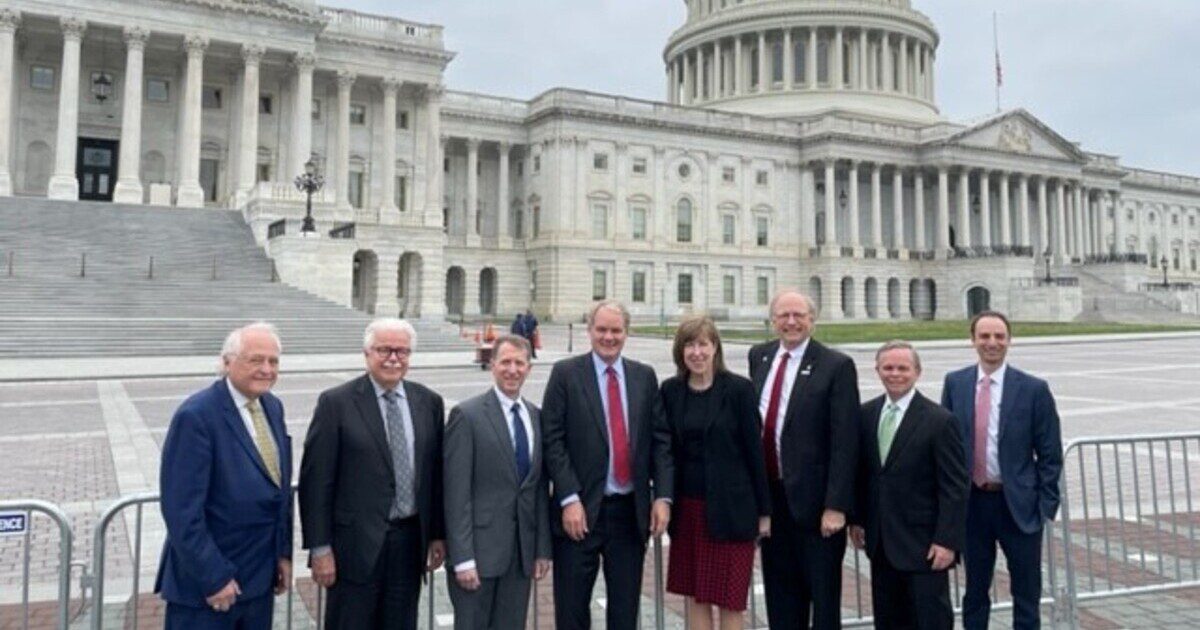After a three-year hiatus, your Advocacy Council Strike Force has resumed in-person advocacy. Last week, the following College leaders visited Washington, DC, to meet with congressional leaders and policymakers to advocate for issues important to practicing allergists:
Michael Blaiss, MD, FACAAI, executive medical director
Mark Corbett, MD, FACAAI, president
Stephen Imbeau, MD, FACAAI, past Advocacy Council chair
Kathleen May, MD, FACAAI, president-elect
J. Allen Meadows, MD, FACAAI, past president and past Advocacy Council chair
James Sublett, MD, FACAAI, past president and Advocacy Council executive director, advocacy and governmental affairs
James Tracy, DO, FACAAI, treasurer and past Advocacy Council chair
Capitol Associates experts Branden Cordeiro, Bill Finerfrock and Matt Reiter also attended. We joined our partners at the Allergy & Asthma Network to have a successful week advocating for issues that affect us and our patients.
While our team continued to work as hard as ever when face-to-face access was restricted by the public health emergency, seeing friends in person again was refreshing. We were among the first groups to venture back to Capitol Hill; it presented some logistical challenges, but we overcame them. Our consultants at Capitol Associates have a saying that sums up our approach this week: “Blessed are the flexible, for they never get bent out of shape!”

Like many things in the world recently, our approach was hybrid. We had a combination of 11 in-person and virtual visits. We met with staff of several members of Congress, including Robert Aderholt (R-AL) and Morgan Griffiths (R-VA), both of whom were instrumental in advocating for allergists to be able to keep mixing extracts in our offices when we were negotiating with USP. We also met with the staffs of both the majority and minority parties of the Senate Health Education Labor & Pensions Committee, the Senate Finance Committee, and the House Energy and Commerce Committee. Most often, many of our advocacy issues are assigned to these Committees.

Combined with our Allergy and Asthma Network partners, we reached 86 members of Congress.
Building on the success of our 2020 legislative victory with the passage of the H.R. 2468, the school-based Allergies and Asthma Management Program Act, the Strike Force also advocated for dedicated federal funding for this important program. We were pleased to learn from H.R. 2468 sponsor, House Majority Leader Steny Hoyer’s (D-MD) office, that they have asked the House Appropriations Committee to provide new funding for the program.
We all felt the trip was very worthwhile.
This year, we advocated for:
- Reducing Prior Authorization Burdens
- Reduce unnecessary delays by streamlining and standardizing prior authorizations.
- Limit changes in formularies.
- Cover biologics.
- Reduce administrative burdens.
- Maintaining Telehealth coverage/payment policies post-PHE
- Continue flexibilities to avoid disruption to access and patient care.
- Remove originating site and geographic restrictions.
- Continue payment parity for visits.
- Continue audio-only services.
- Fixing the Good Faith Estimate (GFE) provisions in the No Surprises Act
- Reduce provider burden.
- Support network adequacy standards.
- Providing Good Faith Estimate:
- Allergists must provide uninsured patients with a GFE upon request or upon scheduling care.
- We advocate that the GFE should only need to be for the services that you “reasonably expect” to provide.
We also asked Congress to proactively prevent Medicare reimbursement cuts from taking effect. These cuts, combined with record inflation and continued expenses related to the pandemic, would cause significant financial disruptions for allergy practices.
These annual Strike Force visits help ACAAI Advocacy leaders establish relationships with important decision-makers. It helps put the face of allergy, ACAAI and our patients before Congress. These meetings allow us to call on these contacts in the future, when legislation impacting allergy, or the practice of medicine is pending. We use our “Congressional Capital” when the need arises but realize the importance of “spending wisely.” View photos from our successful visit.
Your College leaders represent You. They represent Your Patients. They represent Allergy. They represent the College.
The Advocacy Council: ADVOCATING FOR ALLERGISTS AND THEIR PATIENTS.
J. Allen Meadows, MD, FACAAI
ACAAI past president and past Advocacy Council chair




